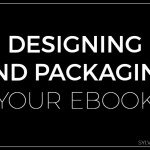I just interviewed my friend and acupuncturist, Emily Bartlett, founder of the meal planning software, Real Plans on how she replaced her acupuncture practice with an eBook.
That same ebook then funded the startup that now employs dozens of people and has revolutionized real food for countless families.
My favorite takeaway is the nugget Emily shares at the very end for fellow practitioners who, like her, love their patients and clients AND ALSO don't want to limit their work to one on one work for the rest of time…
Listen in and let me know what your biggest takeaway is.
If this is the year you finally take the first steps to leveraging your work online, book a call with my team to get clarity on the next steps to make that happen: SylvieMcCracken.com/Call

PREFER TO READ? HERE’S THE TRANSCRIPT OF MY INTERVIEW WITH EMILY BARLETT.
Sylvie: Welcome, everybody! It's Sylvie McCracken from sylviemccracken.com, and today I have one of my incredible friends, Emily Bartlett from realplans.com. Welcome, Emily.
Emily: Hello, thank you.
Sylvie: I am so glad you're here and going to inspire the pants of off everybody because, a couple of things. Emily and I just had dinner, what was it, a week ago?
Emily: A week and change ago.
Sylvie: We've known each other for several years and we've been doing similar things for several years and it was so fascinating to have a walk down memory lane and talk about the early days and where we first got started, when we were just getting going online and just starting our businesses around a day job in my case, around a practice, in Emily's case. And I thought, “You know what? “This conversation really needs to be had “a little bit more publicly. “People need to hear this.” So I'm so glad you had the time out of your busy day to carve out and talk to us today. Thank you.
Emily: My days aren't that busy anymore, though. I have to say.
Sylvie: Yeah. Which is something I wanna talk about as well. So, why don't you tell everybody just kind of what you were doing before you went online. What was your traditional day job? What was your gig?
Emily: Sure, I am an acupuncturist, and I've been practicing for 13 years, and so I started off mostly working in the world of fertility and pediatrics. That was my gig, yeah.
Sylvie: Yeah, and what did that look like hours-wise and schedule-wise?
Emily: I never really wanted to be 5 days a week, 40 hours a week working, so I always did 3 days in the office, 3 long days and that's when I saw patients. I felt like that gave me a good flow of being able to be present and then being able to sort of regroup and refresh.
Sylvie: Got it. How long did it take you to build that practice? How many years were you working on it?
Emily: Oh, you know, I had babies in the middle, so there was a lot of stop and start. I think, gosh, to capacity, eh, it was probably about halfway through the practice that I felt like my practice was at capacity.
Sylvie: Yeah.
Emily: And I also, sorry, brought on an associate as well who started working with us, yeah.
Sylvie: Yeah, I remember when that all happened, too. But I remember those days. I remember your schedule 'cause of course, I was a patient as well. And I remember you working Saturdays. Was that mostly because that's when your patients were available?
Emily: Patient availability plus, I wanted to be able to have some time where I wasn't having to pay for a babysitter. So my husband would be home. That was the flow that worked out. I worked evenings and then I worked weekends, yeah.
Sylvie: Got it. So, on those evenings you weren't really home for dinner with the kids or anything like that?
Emily:No, never.
Sylvie: Yeah, yeah. And it's so interesting 'cause your story I feel like, so far, I mean that's such a common one. I have actually clients that are acupuncturists as well. But it pretty much runs the gamut, nutritionists and dieticians and everything else and a lot of them are doing those longer days because that's when their clients that work full time are available as well.
Emily: Yeah, yeah.
Sylvie: So what made you decide, it was a fairly successful practice, right? As successful as when you're trading time for money can be, right? So, making good income. Of course, any time you took time off, did you get paid for that? Was there any sort of income?
Emily: Nah.
Sylvie: Right, so you were in that traditional trap of like, “If you wanna take a month off, “that means you better have found a golden goose somewhere “that's gonna cover you for a month.”
Emily: Yup, and nobody paid my maternity leave either, that's not a thing, so…
Sylvie: That's not a thing.
Emily: Shortly after my son was born, so it had been a couple of years in the practice, I had gotten into doing more pediatrics and I realized, one, that nobody was gonna pay me when I didn't work, so I needed to figure out a different way to make money because I didn't wanna have to work for every hour, be present for every dollar that I made, and two, in the world of pediatrics, I realized, there were things that I knew that, it wasn't common even in the holistic world.
So, it made me see that there was an opportunity there for something. Information. And I didn't even know what that meant so I started a blog. That was when things started to shift as far as my attention that time.
Sylvie: Well, I feel like that's such an important point that you bring up because a lot of people watching are in that same kind of…They want the trifecta. They want that unlimited income, they want the freedom that they don't have, whether it’s, they're working Saturdays or whatever but they've gotta work, certainly can't take a month off, and then there's that impact piece which at a certain point, once everything else is sort of covered and on the right track, you're sort of like, “You know what? Every single damn day, I'm telling people, stop eating at McDonalds and eat this instead, maybe this could be leverage in a way that I can actually change the freaking world too while I'm at it.”
Emily: Yeah, exactly.
Sylvie: That's incredible. Okay, got it. So, when you started, were you some sort of tech wiz, how did you just know exactly what you're doing? Got to work, got it done, what did that look like?
Emily: No, I had no idea. Luckily, my husband is technical. He was a coder, and so, we would sit in bed and have arguments over what the website should look like and after a while, we've decided no more talking about websites in bed, which is a good policy. But this was before the days where there were a lot of templated website options that now, when I say I'm an acupuncture website, I can totally set that up myself. I don't need his help. The early days was me, a word press site and just time at the computer.
Sylvie: Yeah. Just to kind of skip over, like jump over something, a part of that chapter that we'll come back to you and in terms of how e-books really relates to this whole story and how PDFs got you there, but let's get people the now and we'll kind of go backtrack into how it got to this place. If people are not familiar with Real Plans, they should be. Can you tell everybody a little bit about what the current company is and what it looks like and how big it is and all that jazz.
Emily: Sure! So, Real Plans is a SAS business, so it's software as a service and we are a multimillion dollar business that we built from scratch with no investment. My family and I just spent 9 months traveling the world while we sort of stirred the pot from a distance and attended meetings. The team did an amazing job at making it all happen and have had our biggest year ever and we're set for some pretty big growth in the upcoming year as well. So, that's where we are now but that certainly didn't happen overnight.
Sylvie: No doubt! Also, where you are now is, tell people what you're doing most of your day these days.
Emily: I like to work out.
Sylvie: That was my favorite phrase when we went out to dinner was, “I spend most of my day on fitness because I can.” I was like, “That's amazing!” So, yeah, 'cause that's another question. People have this… I think sometimes… And I certainly had that when I very first started and I remembered hearing that question from my now adult child. When she was younger, like, “If you could do anything, what would you wanna do?” and I feel like that's a whole other Facebook Live for another day, but it really was like, “Why are you asking me this? “That's not really my reality. “I'm just going to work and paying bills and going to sleep “and I'm rinsing and repeating.” but at some point, when you get to that point where it's like, “Oh, we're good now! “It's all covered.”, you really are in that position. Like you, where you have that choice to decide, “Well, what the heck do I wanna do with my day?”
Emily: Yeah, and for now, this is it. I mean, I do a ton of meetings but it's not… It's still not like the hustle days. Which is incredible.
Sylvie: That's where you're at today. Now, what I wanna really highlight for people as well because, you know, I hear every once in a while, “I have an idea for an app” or “I have an idea for a tool” or whatever else. One thing that you said is, when you said no investment, I know you're talking about no outside investment. But really, also, when you very first started, when you very first wanted to replace your acupuncture business with whatever it was gonna be, which at the time, you weren't quite sure, did you have personal investment that could you really plop down a couple hundred dollars and hire a developer?
Emily: Oh, gosh, no. No, it was all just whatever we could scrape by. Most of the money came from my practice. I read a book called ‘The Millionaire Fastlane' which was still cheesy but I sorta loved it. Who was that, is that, Ti…
Sylvie: Tijuana vendor?
Emily: I don't remember.
Sylvie: Am I confusing you?
Emily: You know those things better than I do.
Sylvie: I'll probably miss credit it now, but, anyway….
Emily: But the idea was to see how you can serve the most amount of people and create the most amount of value. So those are the two, if you have a product that is a high value, you obviously need to serve less people but finding something that can really serve a large number of people and solve a problem for a large number of people or bring joy to a large number of people. So that's where I started with trying to figure out, “Okay, what kind of thing can I do?” and an eBook the winner because it's really not an instrumentable achievement to write any book.
Sylvie: I wanna highlight that 'cause a lot of people make it a lot more complicated than it needs to be but really, that was your first product! Was a PDF! Now, you have a multimillion dollar SAS company, a software company and app and whatever else, but it really was a PDF which funded this whole other situation, wasn't it?
Emily: Yup, that's right. And so, I took a week off from seeing patients, my husband took the kids to the beach and I just spent 40 hours busting out the first draft and from there, it wasn't soon after that that we published and went live. So, yeah.
Sylvie: Yeah, that's amazing. And in terms of…Of course, you wrote it in a week which is incredible and you didn't have the time but you made the time. You basically took that time out of your practice and you were like, “You know what? I'm gonna make this an absolute priority because this is my ticket out” which is incredible. Now, in terms of building that audience, that obviously didn't happen overnight. What did that take? Some consistency on your part to kind of keep that ball rolling.
Emily: Yeah. I was publishing content that was relevant to holistic health on a blog but it was also the early days of blogging, so it was a lot of trial and error and…it's a lot of guessing.
Sylvie: Yeah, yeah. No strategy, no SCO, no…kind of like winging it. Winging it basically.
Emily: No, I didn't know. SCO what?
Sylvie: It's amazing 'cause when you look back on it, you go, It's been an incredible growth and at the same time, with what you know now, with what we've figured out basically, you could do that so much quicker that first part of it.
Emily: Yeah, totally.
Sylvie: Which is pretty incredible. So, the other thing I wanna really talk about is to stay on that same topic really is because now, we're kind of several years after and some of the wins are just incredible. I mean, dude, can we just, just like we were talking about, can we just pause for a second and really talk about, you travel the world for most of the year with your family while running a multimillion dollar company, your acupuncture practice is also running itself essentially with an associate, like, this is freaking big stuff, right?
Emily: Yes, it's awesome!
Sylvie: But to bring it back down to planet Earth for a second, in those early days, the reality of it is that you didn't really have any extra time to get this off the ground but you made it work, right? So I wanna highlight that to people because for anyone that thinks, “Emily pressed a button and magic happened.” There was some serious, I saw the sweat, I saw it happen, you seriously put your fingers on the keyboard and grinded it out which is incredible. But I also wanna talk about some of those first, some of those early wins which at the time were mind-blowing in and of themselves. Can you talk a little bit about what your husband was doing at the time and how, why he was able to quit his job and kinda join the team?
Emily: Sure! He was working full-time in Corporate America doing computer nerd stuff. I don't really know exactly what he did. But it was full-time and we saw him the normal amount of time that you're a busy computer guy works and so, when I launched my third product which was these PDF meal plans which was the predecessor to Real Plans, he watched me sort of pulling my hair out and crying about how much work it was because as opposed to meal plan e-books, meal plans are a ridiculous amount of work. He volunteered to create Real Plans which I didn't believe he could do. So he was doing that nights and weekends and so, the income from the e-book and the meal plans and my acupuncture practice were funding…Well, basically, he decided to quit his job. When he did that, we had to take a giant leap. So, the income from e-books and from my practice was what funded that space where we leaped and we were just sort of going on a hope and prayer.
Sylvie: Yeah. You were on that hope, pray, and sweat plan.
Emily: Yes, exactly.
Sylvie: Yeah, that's incredible! I know for you now, you're kinda looking back on it going like, I don't know, it seems like small potatoes compared to some of the stuff you're achieving today but I think for most of the planet and for a lot of the people watching who are stuck in a practice or stuck in a day job, we have a lot of people in our group, in our Facebook group and on our email list who are a doc that's an employee and so, they really are stuck in this framework of whatever. Seeing patients all day, everyday, and the thought of being able to make that leap is already such a gigantic dream. Travel the world almost seems like, “Okay, well that's just ridiculous.”
Emily: Yeah.
Sylvie: Let's just park that over in. But now, but for real, it's like I really wanna highlight that of like how incredible that was and the fact that you were able to do that without having to have a multimillion dollar software company. It was simply by having great product, right? We're not about writing crappy e-books but having a great product and working to make sure that it gets out there, we're working to make sure that that audience was built in an evergreen way so that it can sell while you sleep. Are those e-books, I'm sure, still selling today?
Emily: Oh, yeah! The Eczema Cure, over the time that I did it, we did one new edition just to bring it up to date and it just continues. I get emails constantly, just, bing, bing, bing, bing!
Sylvie: That's amazing, dude! It's great to have you kind of highlight that for people as well and also, the good, the bad, and the ugly, right? Because it's certainly not magic and certainly not overnight. So, another question that I have for you is to touch upon a little bit, was it your second, Feed Your Fertility, was that your second e-book?
Emily: Yes. That was my second e-book.
Sylvie: You published that as an e-book, as a PDF, which is what we teach our clients to do for many reasons and at some point, you decided with your co-author to make that a print book. And so, I want to touch on that which I have, some of our clients might be watching this as well. So that I can tell them “I told you so” later, 'cause they know how I roll, what I wanted to kinda touch on that is, A, would you do it again? And B, why did you decide to do that and how did that go?
Emily: Yeah. It was… My writing partner and I wrote the e-book; we were happy with it but there was a… I don't wanna use the word ego but there was a sense that, like, we wanted the credentials of being a “published author” and especially as a medical professional to be able to be like, “Oh, yeah, I'm a published author.” There was something about that that was really sexy and shiny and even though the little voice over here was like, “You know better, don't do it!” I was like, “Ah, I mean, published author, it's a thing, yeah, that's important.” and so, we negotiated a book deal. I would recommend if someone is so dead set on negotiating a book deal, you negotiate a book deal that is worthy of a year's income because the likelihood of you making any money after that, and I'm talking, like, 100 to $200,000 minimum. Minimum.
Sylvie: As an advance is what you're saying.
Emily: As and advance, yes. Because the likelihood of you making money afterwards is low. So, I didn't do that. So we negotiated in advance sort of knowing that was all the money we were gonna make and we busted our butts redoing the book 'cause once it's published, published, you can't go back and make a second version and just re put it on internet. So that was a whole rewriting of the book and then, despite the fact that I had a really strong audience to promote it to and other bloggers that I'm friends with who promoted it, it's…
Sylvie: All things that the publisher wants you to have, by the way.
Emily: Yes, the whole reason why they court bloggers to do these things. The sales were underwhelming, we never made any money from it. I love the book! I'm so proud of it, but I could have just printed it and had it sitting on my coffee table without having gone through that.
Sylvie: Right. Printed one copy for yourself, basically.
Emily: Yeah, I could have printed 10! So now, I will say, it makes a beautiful business card in my office, we give it to all of our fertility patients, they're super grateful but again, we could have just printed that and made…
Sylvie: That's a great point that you make because a lot of people talk about a book being a business card and I think that that's absolutely the case in terms of, for a traditional book, absolutely! Especially if you're making a dollar a copy, it basically is that. Like, if you have a way to make money on the back end and that's all you want it for, fantastic! But why not do both? Why not have it be a business card and actually be a 6-figure income stream or whatever? Really, there's no limit but we just like to stick to 6 figures just so that nobody's brain pops off but, you know, you could do both, right? And so, what I love is you saying that of like, you're really highlighting that point of, it's a thing, it's totally a thing. People love the idea of a published book. They wanna be able to walk into Barnes and Nobles, do those exist anymore? Just still exist?
Emily: I don't know.
Sylvie: Walk in there and be like, “This is my book!” and I totally get that but what I tell my clients all day, every day is, “Let's just agree that it's a vanity project and not a sanity one. Or a profit one. So it's like, cool! You want a printed book, fantastic! But it is…Compared to the amount of work that you did, I would almost argue your second one might even be a better product than your first one based on you being a better author, you being a better…
Emily: Oh, sure!
Sylvie: And at the same time, it made, what would you say, like 10% of the income of the other one?
Emily: If I'm lucky, yeah. I mean, divided by two.
Sylvie: Oh, yeah. So probably not. That's an incredible difference, if you think about it. So if you had to do it again, what would you do differently with that?
Emily: I would've just stuck with the e-book and, you know, I think different books have a different path to being sold. With The Eczema Cure, it seemed to sell in a different way because The Eczema Cure isn't specific to such a small niche, surprisingly. Tons of people have eczema. Whereas fertility, it's like, you rule out men, for the most part, you rule out people outside of childbearing ages. There's something to being niche by casting a wide enough net that you are addressing enough people that are actually gonna buy it. I think that's super important with picking a book topic.
Sylvie: Yup, no doubt. That's the foundation of our program is really we start with that topic which is what we found over and over again is that make or break spot, where it's like, “We can fix a crappy title later. We can totally redo a title.” But if that topic is wrong and the audience is wrong, it's gonna be just an uphill battle to sell the whole way.
Emily: Yeah, and I think that over time, the second book would have continued to sell fine, it just was a different type of book and a different type of audience.
Sylvie: Yeah, yeah. No doubt. And also, even if you'd sold the same amount of copies, you were making, what, a dollar?
Emily: Yeah.
Sylvie: You would have had probably go on Oprah or something.
Emily: Yeah, exactly.
Sylvie: Cool! That's super-duper helpful! Is there anything else, Emily, that you'd wanna share with anyone watching who has not yet taken the leap? They're still, they're in their practice, they are getting tired knowing that they don't wanna do this when they're 65 years old, but maybe they're in their 30s, maybe they're in their early 40s, and they're starting to think, “Can I really do this? “Am I enough of an expert? “Do I have something that I can share?” And “is it really gonna work?” Or “is it gonna take me forever?”
Emily: I think that something I hear from a lot of practitioners and I heard come out of my mouth and I still believe is that, I love my work. I love working as an acupuncturist. I love working with fertility patients. I love working with families and women. But that doesn't mean that I can also not…I can also love not having to do it, you know? And so, I think there's some… I don't know if shame or just like resistance to but I'm good at this and I love it so I should do it.
Sylvie: And I should be grateful.
Emily: Yeah and you don't have to! You can love it and you can also leave it or do less of it just to have more control of your life which is, it's absolutely amazing to have that kind of freedom. We're build as children like, the best jobs are doctors and dentists and lawyers! But really, you are working for other people and your time is not yours when you have jobs like that and if that's okay for you, then cool! But you're probably not here if that's 100% okay for you. So, I love having my freedom and I also think that if I would've sat around waiting to think, “Oh, gosh, is eczema, am I gonna really write about eczema? What if nobody, there's not that many people that wanna read about that.” Like, I just did it, and saw what happened and it happened to be a success but if the other book was first, I've probably would've moved on and written the second book. So, you just have to get up and go and do it and stop hemming and hawing about it.
Sylvie: Yeah. Get up, do it, put the consistent work in, follow the path, and yeah, you can absolutely do it, and I would argue that, as much as you were helping people in your acupuncture practice, you're helping so many more, you're helping thousands of families now where you would never in your lifetime be able to see them one on one if you tried.
Emily: No, and we also are employing like 30, 40 people at any given moment. So, we do still feel that sense of like, “Gosh, I'm putting positive impact into the world and I'm able to do that while I'm at spinning.”
Sylvie: At boxing, kicking some butt! Literally, sometimes! That is amazing, I love it! Well thank you so much, Emily, for sharing your journey and for anyone else that's on the fence, that's thinking, “Do I even have something worth sharing? Can I really do this? Is now the right time? What if I wait for 6 months later or whatever else?” Hop on a call with my team, that's exactly what we do. We'll get you major clarity.
Everyone that's gotten off the phone with my team has said it's the best hour that they've spent in the last couple of years on their business. We'll talk about whether or not it's great for you, whether now is the right time for you, what is not working in your business, and what you want it to get to instead. Of course, if we can help you bridge that gap, we're totally gonna let you know how, and if we can't, we're gonna point you in the right direction instead.
So to book a call, the URL is sylviemccracken.com/call and they will absolutely help you and knock your socks off. Alright, so in the meantime, if you wanna visit Emily's site, her website is realplans.com, thanks again, Emily, for being here.
Emily: Thank you, it was fun.
Sylvie: Alright.




